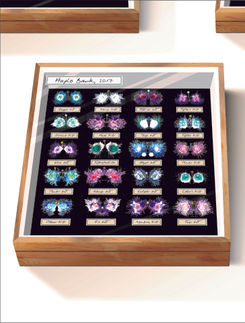Holocaust survivors pass on trauma to their children’s genes
Pre-conception trauma results in transmission of epigenetic changes from the exposed parents to their children
Advertisement
An international team lead by Rachel Yehuda, professor at Mount Sinai hospital in New York, and for the molecular analyses Elisabeth Binder, director at the Max Planck Institute of Psychiatry in Munich, studied the genes of 32 Jewish individuals who had been held in concentration camps, experienced torture or had been forced into hiding during the Second World War. The researchers additionally examined the genes of the group’s children who are known to have an increased likelihood of stress disorders, and compared the results with Jewish families living outside Europe during the Holocaust.
The scientists concentrated on epigenetic changes in the FKBP5 gene which has long been the research focus of Elisabeth Binder. “With ‘epigenetic’ we mean all processes that do not change the actual genetic code but alter its accessibility,” explains Elisabeth Binder. “FKPB5 determines how effectively the organism can react to stress hormones, and so regulates the entire stress hormone system. FKBP5 is altered in several diseases such as posttraumatic stress disorder or major depression and has now been associated with intergenerational effects.”
The results suggest that ‘epigenetic inheritance’, where a person’s life experiences can affect the genes of their offspring, may play an important part in a child’s development. “The gene changes in the children did not appear to be mediated by adversity experienced during their own childhood but could only be attributed to Holocaust exposure in the parents,” said Rachel Yehuda. “Environmental influences such as stress, smoking or diet can affect the genes of our children. Early detection of such epigenetic marks may advance the development of preventive strategies to address the intergenerational effects of exposure to trauma.”























































